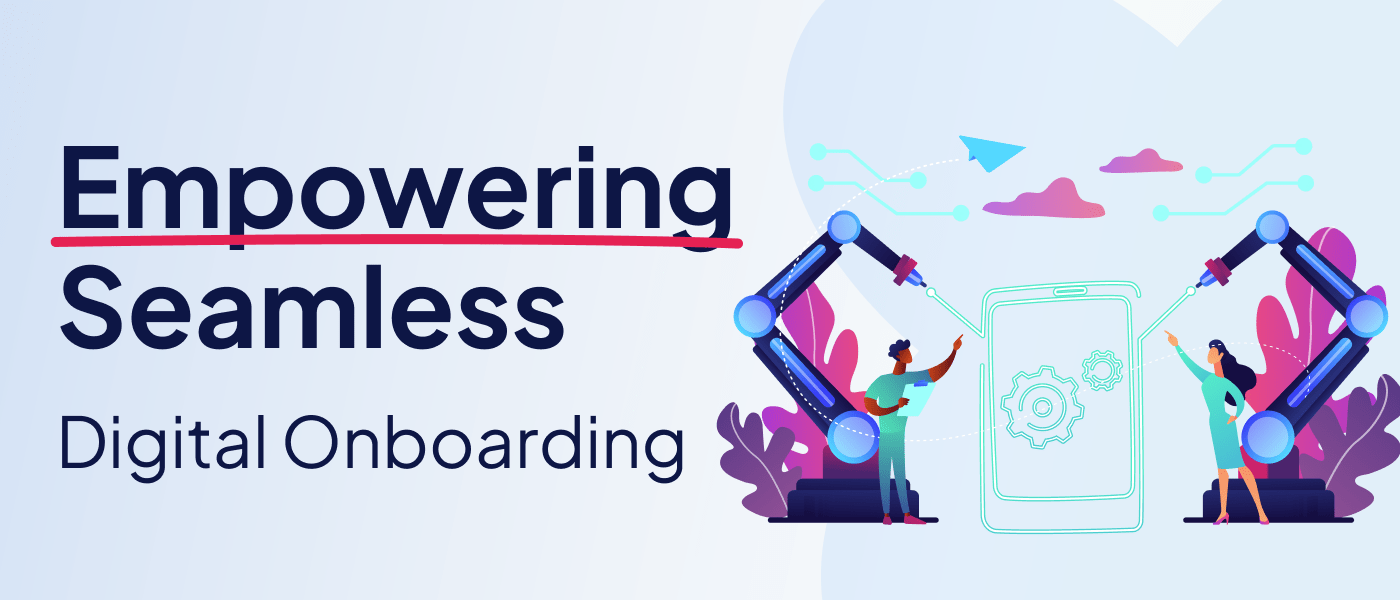Partager :

The digital transformation wave sweeping through the financial services industry has ushered in a new era of efficiency, convenience, and personalized experiences. At the heart of this revolution lies artificial intelligence (AI), revolutionizing the landscape of digital onboarding. AI is playing a pivotal role in redefining how financial services providers attract, engage, and onboard customers. This article explores the transformative power of AI in digital onboarding, highlighting its key role in shaping the future of financial services.
- Intelligent Customer Engagement:
AI enables financial services providers to deliver intelligent and personalized customer engagement during the digital onboarding process. Moreover, by leveraging machine learning algorithms, chatbots, and virtual assistants, AI-powered systems can interact with customers in a natural language format, addressing queries, providing guidance, and offering relevant product recommendations. Consequently, this level of intelligent engagement fosters a seamless onboarding experience and enhances customer satisfaction.
- Streamlined Identity Verification:
Identity verification is a critical aspect of digital onboarding. Furthermore, AI-powered technologies, such as facial recognition and biometric authentication, streamline the verification process. By doing so, they effectively reduce the need for manual intervention. AI algorithms meticulously analyze and compare facial features or biometric data against databases, ensuring accurate and secure identification. This, in turn, effectively minimizes the risk of fraud and significantly enhances the overall efficiency of the onboarding journey.
- Automated Document Processing:
AI-based optical character recognition (OCR) technology automates the extraction and processing of information from documents submitted during the onboarding process. By analyzing structured and unstructured data, AI algorithms can extract relevant details, validate information, and ensure compliance with regulatory requirements. This automation minimizes manual errors, reduces processing time, and enhances operational efficiency. Furthermore, thanks to text extraction, internal and cross document controls can be performed to ensure the identity reliability.
- Risk Assessment and Fraud Detection:
AI plays a pivotal role in risk assessment and fraud detection during digital onboarding. Machine learning algorithms analyze vast amounts of data to identify patterns, anomalies, and potential risks associated with customer profiles. By flagging suspicious activities and assessing risk levels in real-time, AI systems help financial services providers mitigate fraudulent behavior and ensure compliance with anti-money laundering (AML) and know-your-customer (KYC) regulations.
- Personalized Product Recommendations:
AI-driven algorithms analyze customer data, preferences, and behaviors to offer personalized product recommendations during the onboarding process. By leveraging machine learning and predictive analytics, financial services providers can present tailored offerings. It aligns with individual customer needs, improving conversion rates and cross-selling opportunities. For instance, according to uploaded documents, these algorithms are able to suggest a relevant onboarding process to ensure the customer identity. This personalized approach enhances the customer experience and drives long-term customer loyalty.
- Continuous Improvement through Data Insights:
AI-powered analytics enable financial services providers to gain actionable insights from vast amounts of data generated during digital onboarding. By leveraging machine learning algorithms, they can identify bottlenecks, optimize processes, and improve conversion rates. AI also empowers data-driven decision-making, helping organizations refine their onboarding strategies, tailor marketing campaigns, and enhance customer engagement based on valuable data insights.
AI has emerged as a game-changer in the realm of digital onboarding for financial services. From intelligent customer engagement to streamlined identity verification, automated document processing, risk assessment, personalized recommendations, and data-driven insights, AI is revolutionizing the way financial institutions attract and onboard customers. QuickSign has been embracing AI technologies since its creation. This has enabled financial services to deliver seamless, efficient, and personalized experiences, driving customer satisfaction, loyalty, and competitive advantage. As the digital landscape continues to evolve, the role of AI in digital onboarding is becoming increasingly essential, propelling financial services providers towards a future of unparalleled innovation, growth, and customer-centricity.
At QuickSign, we accompany this growth while ensuring that compliance is assured and systemic fraud attacks are significantly reduced.
Written by Alexandre B


